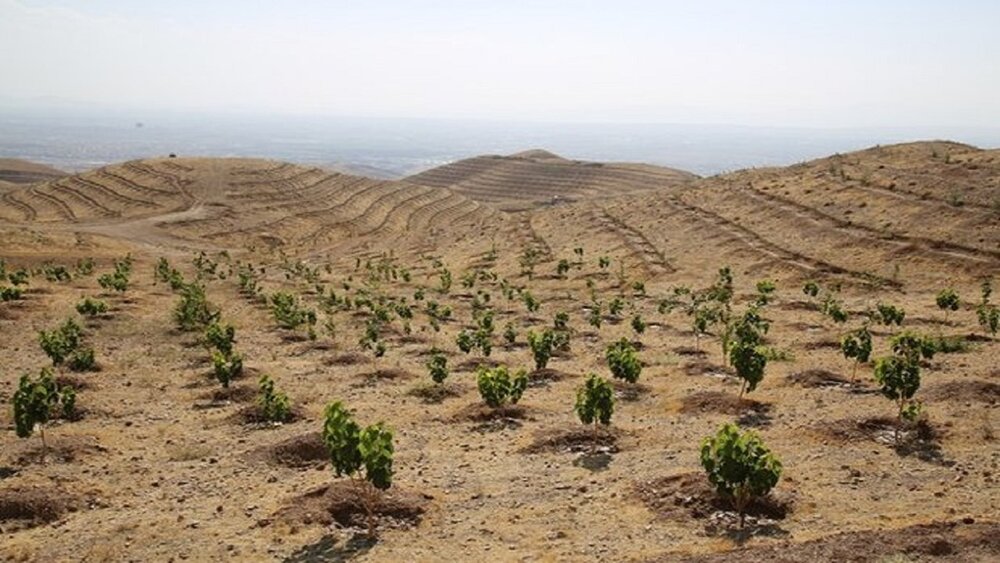Two forest parks to be created to help fight SDSs

TEHRAN – Two forest parks are to be built on the border of Iran and Iraq to counter sand and dust storms (SDSs), Masoud Mansour, head of the Forests, Rangelands, and Watershed Management Organization, has said.
According to forecasts, 15,000 hectares of forestry will be planted in Iran, and 15,000 hectares of forestry inside Iraq.
“The construction of two 1,900-hectare parks in Iraq is planned, and we hope that it will enter the implementation phase this year, although the beginning of this project highly depends on the agreements and consultations between the two countries.
Iran is surrounded by 8 large SDS hotspots stretching to 270 million hectares mainly in Turkmenistan, Uzbekistan, Afghanistan, Pakistan, Iraq, Syria, Saudi Arabia, and Jordan. Plant species that are adapted to desert conditions will be planted in these areas,” he explained, ISNA reported on Sunday.
SDS phenomenon
Iran is surrounded by 8 large SDS hotspots stretching to 270 million hectares in neighboring and Persian Gulf countries, Ali Mohammad Tahmasebi, head of the national working group for mitigating SDSs, has said.
The SDSs phenomenon has been plaguing the country for several years and has caused problems in many provinces. According to experts, natural and human factors are involved in the occurrence and severity of this phenomenon which is mainly caused by excessive consumption of water and drying up reservoirs.
The internal dust sources are estimated at 34.6 million hectares, generating an average amount of 4.22 million tons of dust per year, about 1.460 million hectares are dried wetlands.
Some 4.23 million tons of dust are raised per year, which means the loss of soil fertility will hit the agricultural sector.
Moreover, 300 million hectares in the neighboring countries are giving rise to SDSs, which transport dust into Iran. The total dust density is estimated at about 150 million tons.
In fact, the dust is raised from Turkmenistan, Uzbekistan, Afghanistan, and Pakistan in the northeast as well as Iraq, Syria, Saudi Arabia, and Jordan in the south, southwest, and west.
In the past four years, about €370 million has been spent by the National Development Fund to combat SDSs, which had good results, but it seems that the annual credit is declining as conditions improve, Tahmasebi said.
FB/MG
